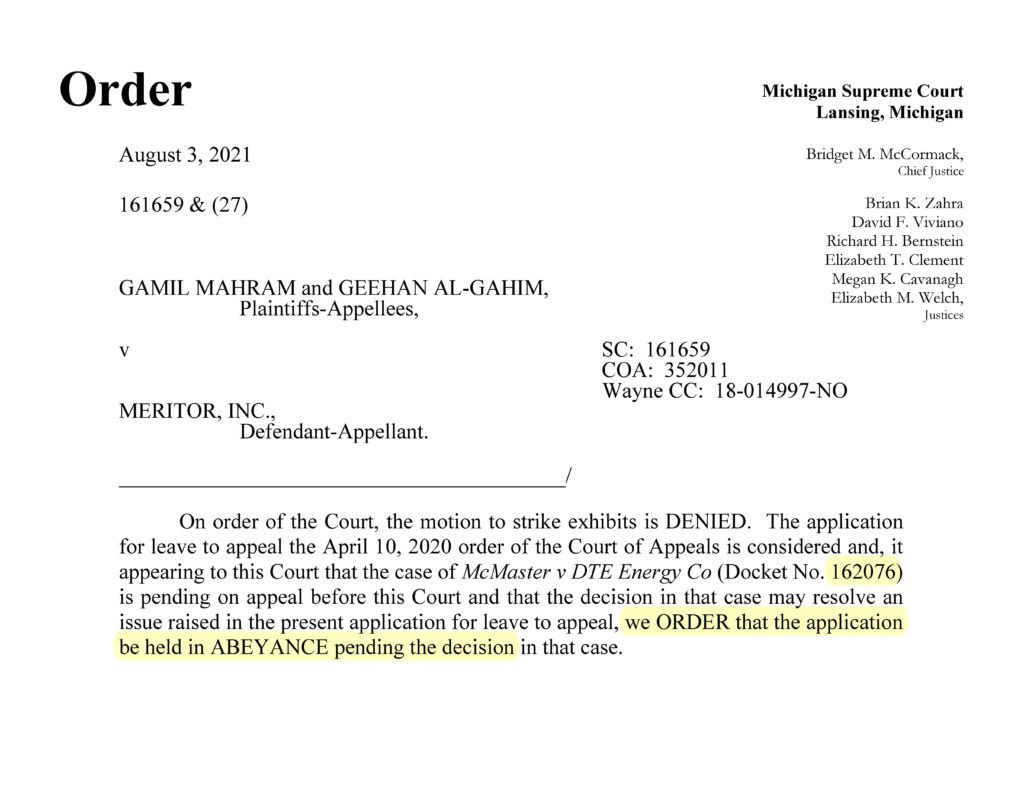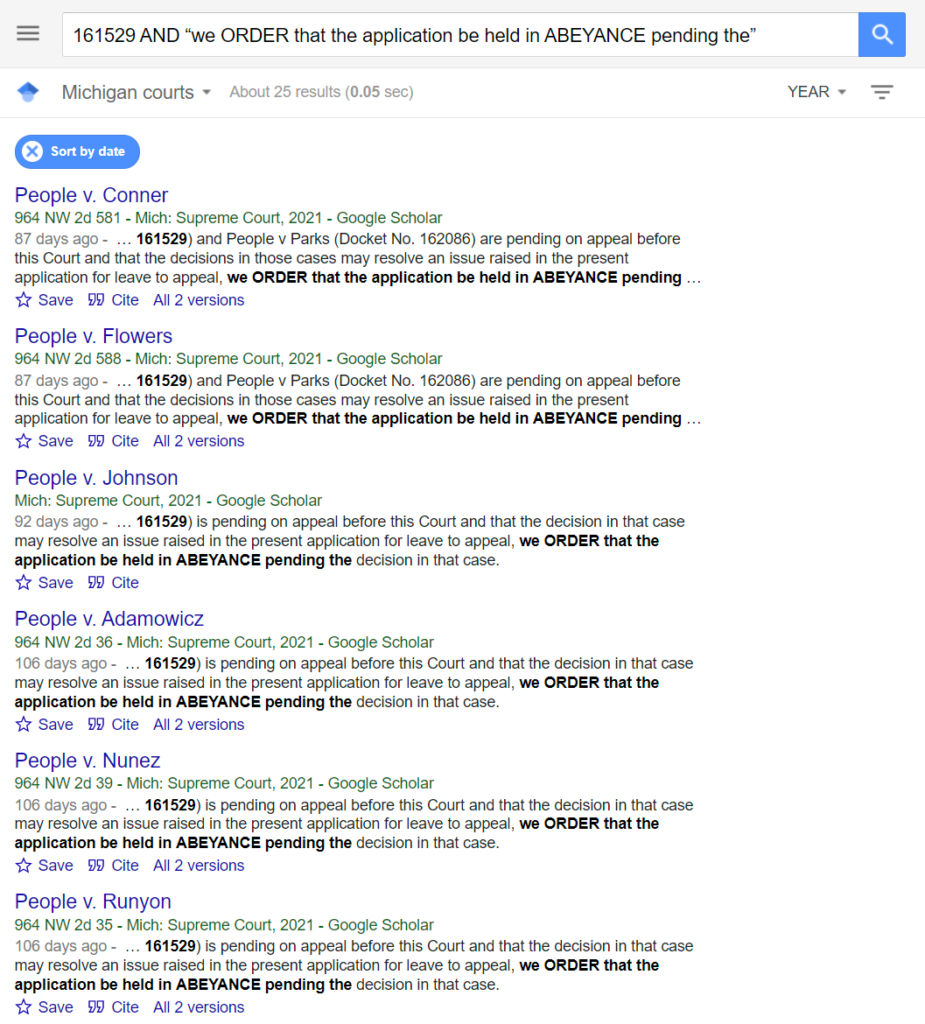It’s not a throwaway oral argument question when a Michigan justice asks or reminds counsel that the Court also must consider the next 100, 200, or 500 cases when deciding what the rule of law is and how it should be applied.
Sometimes it’s mentioned in written statements or opinions:
“As members of this Court have stated on innumerable occasions during oral argument in our courtroom, it is the Court’s responsibility not only to address the case immediately before us in accordance with the law but also to afford guidance in the “next one-hundred” similar cases.” Lowery v Enbridge Energy Ltd. P’ship, 500 Mich 1034 n.14 (2017) (Markman, C.J., concurring).
“It is very common, if not routine, for one or more members of this Court to inform counsel during oral argument that the outcome of the specific case being argued by counsel is less important to the Court than the next hundred cases raising related issues that will be governed by the outcome of this case.” Mich Gun Owners, Inc v Ann Arbor Pub Sch, 502 Mich 695, 712 n.1 (2018) (Wilder, J., concurring in part and dissenting in part).
The Court’s “Briefing and Arguing Cases in the Michigan Supreme Court” guide also reminds advocates to be ready for the question:
“Again, it is important to remember that, from the perspective of the Justices, oral argument is not just about your case. It is about the rule of law that the Court will lay down for future cases. Be prepared to address how your case will affect other cases. Understand and be prepared to discuss the policy implications of your case for the state’s jurisprudence, which is to say that you should be ready to discuss the potentially far-reaching implications of the rule you are urging the Court to adopt.”
Researching the Court’s abeyance orders can reap impressive dividends in being ready for this question. And if your application is the one that’s ordered abeyed (temporarily on hold), researching related orders may persuade your client to file an amicus brief in the primary case that will be first argued.
By my informal count, 75 applications are currently abeyed while the Court decides related applications queued for oral argument.
In fact, three of the matters scheduled for January’s call are connected to abeyance orders in separate cases.
- File 161659 is abeyed pending the decision in 162076
- File 158902 is abeyed pending the decision in 157738 and 158695
- File 162702 is abeyed pending the decision in 162332-3
See how the justices’ routine oral argument question becomes very real and not speculative?

How can you learn whether other cases are abeyed while the Court decides a separate, argued case? And what they are?
A Google Scholar (case law) search.
This link will direct you to the Michigan cases. https://scholar.google.com/scholar?as_sdt=4,199
There are two variables to enter into the search box: [the six-digit MSC file number] AND the standard phrase “we ORDER that the application be held in ABEYANCE pending the”
For example, the Google Scholar search of: 161529 AND “we ORDER that the application be held in ABEYANCE pending the” lists the orders of the applications that have been abeyed while the Court first decides file 161529 (People v Poole).

With that information, advocates—oral argument or potential amici filers—can better survey the current legal landscape when preparing to answer the question about the next 100 or so cases.

